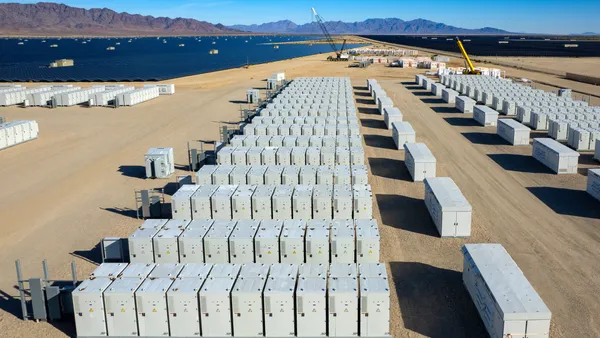Editor’s Note: This story has been updated to include comments from Salt River Project.
Vote Solar on Friday asked the Federal Energy Regulatory Commission to launch an enforcement action to change Salt River Project’s residential rooftop solar program, which the advocacy group contends is discriminatory and violates the Public Utility Regulatory Policies Act.
“The Commission should bring an action to compel SRP to offer non-discriminatory rates for the sale of electricity to, and purchase from, residential customers with rooftop solar,” Vote Solar and two SRP customers said in the request for an enforcement action against the public power utility based in Tempe, Arizona. “SRP’s current policies for residential customer solar violate the Commission’s rules and have decimated what was previously a robust market for solar.”
In violation of PURPA, SRP’s residential solar customers must pay higher fixed charges than non-solar customers; must choose between a hard-to-manage demand charge or a 2.8 cents/kWh export credit that is below SRP’s avoided costs for electricity; and, cannot use a more beneficial and easier to manage time-of-use rate that is available to non-solar customers, Vote Solar said in the filing.
Through the fixed charges, SRP’s solar customers with service at 200 amps or less pay $12.44 more a month than non-solar customers for the same amount of SRP-provided electricity, Vote Solar said. Solar customers with service above 200 amps pay $25.44 more, according to the advocacy group.
Vote Solar said SRP’s 2.8 cents/kWh credit for rooftop power exported to the grid is based on a bid SRP received for a 100-MW utility-scale tracking solar facility.
But PURPA requires SRP to buy electricity from qualifying facilities at the utility’s system-wide marginal cost, not at a price based on a low-cost resource in the utility’s generation portfolio, Vote Solar said.
Also, SRP’s updated cost allocation study for fiscal year 2020 indicates its marginal energy costs range from 4.9 cents/kWh during summer peak to 2.7 cents/kWk during the winter off-peak, according to Vote Solar.
SRP contends that it supports residential rooftop solar. It no longer offers rooftop solar incentives, but SRP provides a $250 rebate for customers who buy a rooftop demand management system.
Based on an initial review of the filing, SRP believes the claims are without support and the background in it on the utility’s programs and support of its solar customers is inaccurate, Jennifer Schuricht, a utility spokesperson, said.
“SRP continues to support its customers who wish to install rooftop solar systems and provides a number of rate options for them to choose from,” she said, noting that the utility had more than 54,000 residential customers with rooftop solar systems as of Sept. 30.
SRP’s residential solar tariffs previously sparked two antitrust suits that were settled without a review of their merits and that didn’t involve PURPA, according to Vote Solar.
In the lawsuits, Schuricht said, “the Ninth Circuit and the U.S. District Court addressed the appropriateness of SRP pricing to cover its costs and to prevent cost shifts to non-solar customers.”















